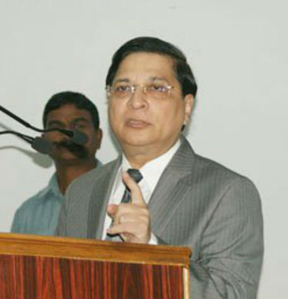
NEW DELHI: The Centre has told the Supreme Court that data of users was “integral” to the Right of Life and Personal Liberty guaranteed under the Constitution and it would come out with regulations to protect it.
It said that there was a need for intervention by the State in the matter as data was connected to the personality of a user.
The submission was made before a five-judge constitution bench headed by Justice Dipak Misra which was examining the contentious issue of 2016 privacy policy of WhatsApp.
“Data of user is connected to the personality and it is an integral part of Article 21 (Protection of Life and Personal Liberty of the Constitution). If any contractual obligation impinges upon that, it will have ramifications. We will come out with regulations (on data protection),” Additional Solicitor General P S Narasimha submitted.
The bench also comprising Justices A K Sikri, Amitava Roy, A M Khanwilkar and M M Shantanagoudar observed that it would have to “draw a line” on where data could be used and where it could be “misused”.
During the hearing, the court said “arbitrary” conditions could not be imposed on the users and though the Centre has said it would come out with a regulatory regime, the issue was how to control it till the time the regulatory measures were put in place.
“We have already said that do not link privacy issue with this. This case can be argued on another platform. I have a choice. You have a facility. When you are giving a facility, you cannot impose arbitrary conditions,” Justice Misra said.
The bench also observed that such platforms cannot impose conditions which violate rights of citizens as choice of the users cannot be “curtailed”.
Senior advocate Kapil Sibal, appearing for WhatsApp, told the bench that the mobile application was not at all against a regulatory regime and no user data was shared on the instant messaging platform.
He, however, told the court that since a nine-judge bench of the apex court is adjudicating the issue whether right to privacy is a fundamental right, this matter should be heard after the judgment is pronounced by the larger bench.
The court, after hearing the submissions, fixed the matter for further hearing on September 6 as the nine-judge bench was likely to pronounce its verdict on right to privacy by then.-PTI





